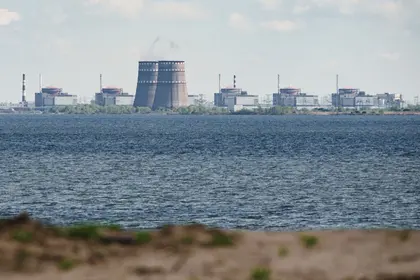The Russian occupation of Europe’s largest nuclear power plant poses a high risk to the surrounding territory, according to Enerhoatom head, Petro Kotin. Since March, Russian military forces have used the Zapporizhzhia nuclear complex as an army base from which to shell Ukrainian forces and to stir Western fears of a nuclear disaster.
Damage to the site is considered extensive. Ukraine Armed Forces claimed again on Aug. 7 the Russian invaders are shelling the compound. The rockets hit, in particular, near the dry storage of spent nuclear fuel. According to Enerhoatom, the nitrogen-oxygen station and the combined auxiliary building were damaged by the shelling. There are still risks of hydrogen leakage and sputtering of radioactive substances. Fire hazard is high.
“Currently, due to the provocations of the invaders and their deliberate shelling, the Zaporizhzhia NPP has damaged the power grid. As a result of the shelling, the plant operates with the risk of emergency situations and fires,” reported Oleksandr Starukh, head of the Regional Military Administration.
According to Starukh, the administration has decided to update its emergency action plan.
“Because of the potential danger, there is an urgent need to take measures to reduce the possible consequences of man-made hazards associated with the situation in Zaporizhzhia NPP, including clarification of the forces and means that may be involved in the liquidation of the consequences of the emergency (fire units, medical personnel, national police, etc.), clarification of the evacuation plan, reception and accommodation of the evacuated population in case of the threat of occurrence.”

Massive Christmas Day Attack by Russia, Ukraine Reports
One of the most significant issues considered is creating a reserve of specialized drugs which will partially protect people from the worst consequences of possible exposure.
“We must be prepared for any situation, even the worst one. In this case, exercising excessive vigilance is better than allowing risks due to negligence,” Starukh emphasized. “That’s why we need to review all evacuation plans as soon as possible and … to check the availability of means of protection for our residents. Because of the unpredictability of our enemy, we must urgently work out effective plans, with real evacuation points, all means, and transport. In our conditions, time is life.”
You can also highlight the text and press Ctrl + Enter






